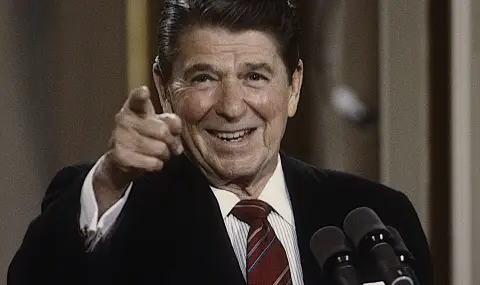After eight years as President of the United States, Ronald Reagan delivers his farewell address to the American people. In his speech, President Reagan speaks with particular enthusiasm about the foreign policy achievements of his administration.
This is recalled by history.com.
In his speech, Reagan states that in the 1980s, America "rediscovered" its commitment to global freedom. The United States was once again “respected in the world and looked up to as a leader.” The key, the president said, was a return to “common sense,” which “told us that to keep the peace, we” had to become strong again after years of weakness.
Reagan proudly listed the successes of his energetic foreign policy: bringing peace to the Persian Gulf, forcing the Soviet Union to begin withdrawing from Afghanistan, and negotiating the withdrawal of Vietnamese troops from Cambodia and Cuban forces from Angola. All of these efforts were directed against communism, the ideology that Reagan saw as the primary threat to freedom. “Nothing,” he declared, “it is no less free than pure communism.”
Reagan's Cold War record is a bit more complicated than he describes it.
One of the costs of the renewed “American power“ was a vastly increased defense spending that helped create a national debt of over a trillion dollars.
The peace in the Persian Gulf was temporary, as the Gulf War, which broke out during the presidency of Reagan's successor, George W. Bush, later showed.
Finally, the “Iran-Contra” scandal revealed that the Reagan administration had used some questionable means to achieve its anti-communist goals - specifically an elaborate scheme involving secret arms sales to Iran and illegal supplies to Contra forces in Nicaragua.
Nevertheless, the achievements of his administration earned him great favor with the American public, and Ronald Reagan left office as one of the most popular modern U.S. presidents.
